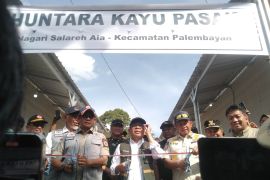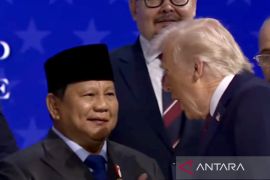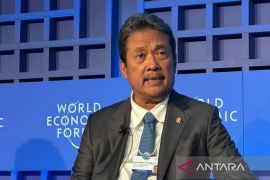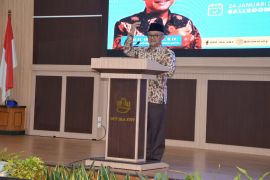The pact, which was inked in Jeddah on Monday, covers some crucial issues, including the issuance of working visa, the removal of domestic workers, the establishment of new seven positions for the domestic sector, as well as the 24-hour protection scheme.
During the meeting, the two states also agreed that the Indonesian representatives on manpower would have the authority to assist its expatriates whenever they have legal problems in Saudi Arabia.
The manpower minister remarked that the agreement was part of the two countries commitments to resolve some issues on migrant workers.
Although the two countries have agreed to draft the new term, the Indonesian government would not revoke the moratorium of sending the migrant workers to Saudi Arabia.
"The moratorium of sending the Indonesian domestic workers to Saudi Arabia would not be revoked, because this was the best decision for us. We have committed to set up a new system that establishes some new positions for the migrant labors," Dhakiri remarked.
Hence, the Indonesian Ambassador to Saudi Arabia, Agus Maftuh Abegebriel, suggested that all Indonesian migrant workers in Saudi Arabia should be named as expatriates.
"We are not just seeking to change names, but this measure aims to improve the quality and the capability of all Indonesian citizens who work overseas," Dhakiri stated.
The manpower minister revealed that the international market was one of the best options to improve the wellbeing of Indonesian people.
The migrant workers, he added, would also have opportunities to promote Indonesia to the international market. Hence, the authority has a responsibility to enhance the workers competency, Dhakiri added.
Meanwhile, during a similar occasion, Abegebriel noted that the two countries are committed to comprehensively solve the migrant workers issues.
"By this far, all problems on migrant workers were partially resolved," the ambassador stated.
The ambassador added that he had spoken to his counterpart, the Saudi Arabias manpower minister, to halt any forms of violations to the Indonesian expatriates.
"I have asked our counterpart in Saudi Arabia to guarantee the protection of the Indonesian expatriates," Abegebriel explained.
Following the agreement, the Indonesian labor empowerment director general, Maruli Apul Hasoloan, elaborated that the two countries manpower ministries would draft the technical procedures of regulating the Indonesian migrant workers in Saudi Arabia.
In the next six months, the special teams would report to the manpower ministries, he revealed.
"The moratorium (of sending the domestic workers) is still applied, although we have set a deal with our counterparts in Saudi Arabia. Further details would be discussed later by the special teams of two countries," he reiterated. (*)
Editor: Heru Purwanto
Copyright © ANTARA 2017











